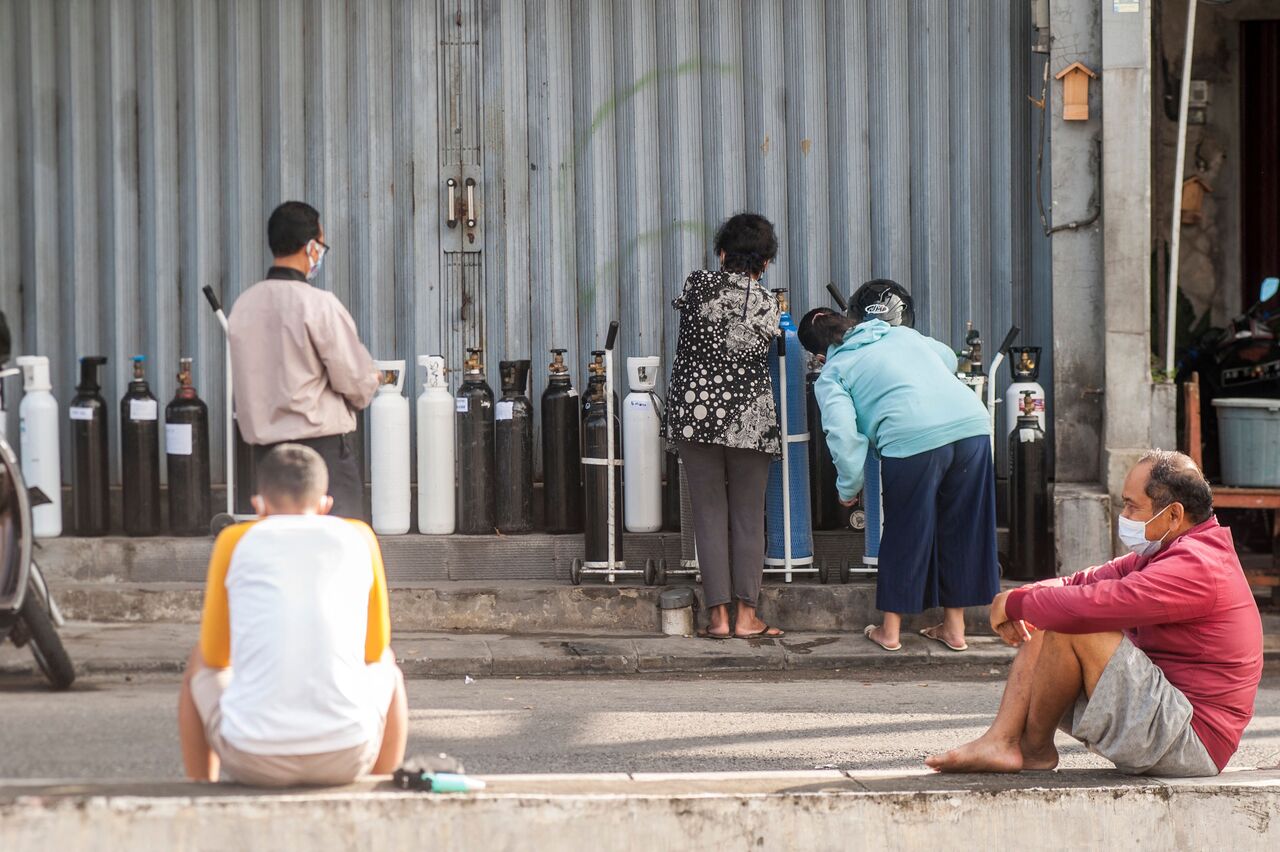Indonesia proposes global pool of resources for health crises
Sign up now: Get insights on Asia's fast-moving developments

Besides financial aid, resources in the global pool could include oxygen cannisters and personal protective equipment.
PHOTO: AFP
JAKARTA - Indonesian Health Minister Budi Gunadi Sadikin has proposed the creation of a global pool of resources that could be rapidly channelled to countries facing a health crisis and in need of prompt assistance.
Mr Budi, who has 30 years of experience as a banker, elaborated that there is a need for a new financing mechanism for global health emergencies, akin to that in the financial industry, where the International Monetary Fund supports a country facing a monetary crisis.
Besides financial aid, resources in the global pool could include oxygen canisters and personal protective equipment.
Mr Budi made the comments during a Group of 20 (G-20) health ministers' meeting in Rome, Italy, earlier this week (Sept 6).
The ministers discussed strategies to support equitable access to vaccines, health impacts of the Covid-19 pandemic, and coordinated response to health emergencies.
"In times of emergency, disbursement of these resources to countries in need must be done in quick and equitable manners. Such an instrument should be developed with the principles of accountability, transparency, and in the spirit of global solidarity," said Mr Budi, according to a copy of his speech.
The pooling of resources must be based on proportional participation from countries, and this should be done in addition to - not at the expense of - other priorities, he added.
Mr Budi, known for his good managerial and organisational skills, is Indonesia's first health minister who does not have a medical education background.
The former banker, who has a bachelor's degree in nuclear physics, was a former deputy minister of state enterprises and the head of the national economic recovery committee.
Several countries in Africa and Asia have shown delayed response when they were hit by Covid-19 case surges as they were reluctant to promptly adopt strict movement restrictions to contain the spread of the virus due to the accompanying high social assistance costs.
In the Rome meeting, Indonesia also pushed for more equitable access to vaccines, drugs and test kits, stressing the need to strategically increase global production and share them as widely and equitably as possible.
"We must aggressively develop locally based manufacturing capacities for vaccines, therapeutics, and diagnostics.
"To do this, transfer of technology and know-how, as well as improving capacity in research and development, especially from the developed nations to the rest of the world, should be accelerated," Mr Budi argued.
Indonesia's state-owned pharmaceutical company Bio Farma, which makes polio vaccines, among others, is doing part of China's Sinovac Covid-19 vaccine production stages.
Indonesia, South-east Asia's most populous country, is also developing its own Covid-19 vaccines and advanced clinical trials are ongoing.
Developing countries are being disadvantaged as richer countries that have enough doses of Covid-19 vaccines are not giving way in the queue to buy vaccines, while producing countries are not waiving their intellectual property for the vaccines.


